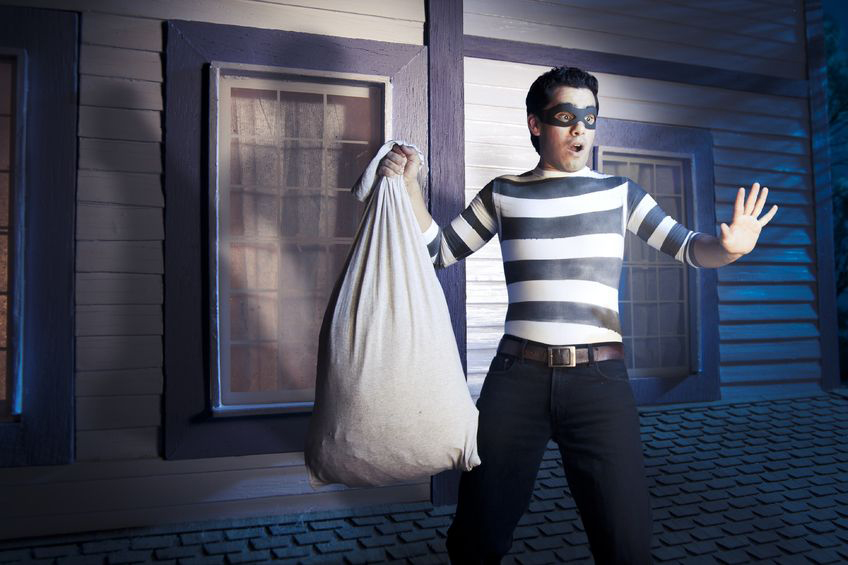
While in court this week I had a person ask me about possible representation on a burglary charge. Upon speaking with this individual, I think he was confused by the definition of burglary in Texas. In addition, I don’t think he really grasped the true severity of this crime. While there are proposed changes to the definition of burglary in the Texas Penal Code going into effect this September, let’s look at the history of the offense of burglary up until now.
The truth of the matter is that aside from murder, burglary and robbery were once thought of as some of the most egregious of crimes in colonial America and England. In my opinion, not much has changed. Juries just don’t like burglars and robbers. Worse than thieves, burglars and robbers threaten our lives and well-being. Thieves are thought of as being sneaky trying to take your property without being detected. Burglars evoke an uneasy feeling of being violated. After all, what is more discomforting than the thought of someone rifling through your possessions in your own home uninvited? While robbers generally grab and go, burglars try to find an unoccupied home and take their time. The burglar can do much more damage and cost the victim more because they can take their time emptying the contents of your home.
The definition of burglary has changed over time and to get to the modern definition you need to look at the history of burglary. The crime has always reflected the breaking into the home or building of another and what flows from the damages caused to people and their property.
Burglary in Anglo-Saxon times was known as husbryce or hamsocn. Husbryce was defined as, “if anyone goes with premeditation to a house where he knows his enemy to be and attacks him there, whether he does this by day or night.” How serious was the crime? Typically, the punishment was death. Plus, if you died in the process, you were to be denied a Christian burial. The literal meaning of the word was “house-breach.” In those days, the definition was more along the lines of when a person caused injury to another while participating in an armed raid of the village.
In the 14th century, burglary began to take on its more current meaning. All you needed to do was break into a building and have the intent to steal upon entering. You didn’t have to actually steal anything. The law evolved in the 15th century. The new elements for burglary were that you broke into the dwelling house of another (someone had to be in the home at the time) and the crime took place at night. If the burglary were to take place during the day it would be defined as a trespass.
In the 18th Century, Texas defined burglary as “entering a house by force, threats, or fraud, at night; or in a like manner by entering a house at any time, either day or night, and remaining concealed therein, with the intent in either case of committing a felony or the crime of theft.”
Today, in Texas, a person commits the offense of burglary “if, without the effective consent of the owner, the person:
(1) enters a habitation, or a building (or any portion of a building) not then open to the public, with intent to commit a felony, theft, or an assault; or
(2) remains concealed, with intent to commit a felony, theft, or an assault, in a building or habitation; or
(3) enters a building or habitation and commits or attempts to commit a felony, theft, or an assault.”
The punishment is a state jail felony which is punishable by anywhere from six months to two years in the Texas Department of Criminal Justice State Jail Division and a $10,000 fine for burglary of a building.
If the burglary is committed in a habitation then the punishment becomes a second-degree felony which is punishable by anywhere from two years to twenty years in the TDCJ Institutional Division and up to a $10,000 fine.
If the offense is committed in a habitation and any party to the offense entered the habitation with the intent to commit a felony other than the felony of theft or committed or attempted to commit a felony other than felony theft then the offense is punished as a first-degree felony. In Texas, a first-degree felony carries a possible range of punishment of anywhere from five years to ninety-nine years in the TDCJ Institutional Division and up to a $10,000 fine.
Burglary is a serious offense and if you are accused of burglary, you need serious representation. Call an experienced criminal defense attorney today. Call M. Neufeld Law.
 Conroe Criminal Lawyer Blog
Conroe Criminal Lawyer Blog

